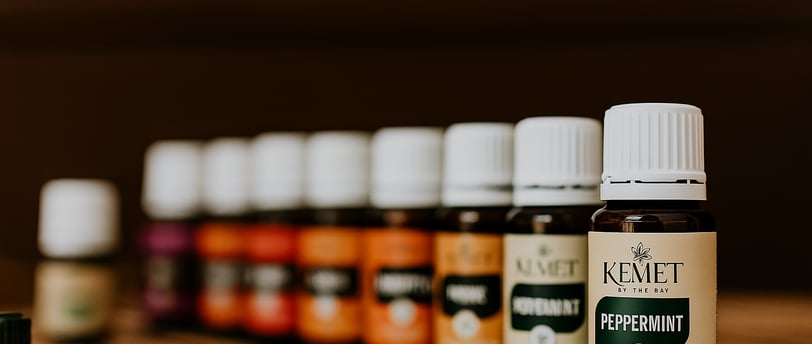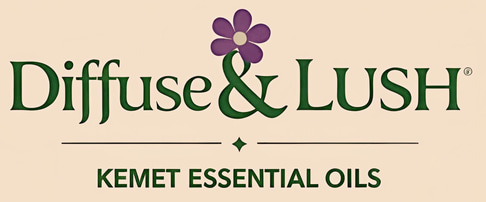Top Countries Consuming Essential Oils and Why Egypt Has the Best
Essential oils are more than just fragrances—they're a global wellness trend! 🌿✨ From aromatherapy to beauty and home care, essential oils have gained popularity worldwide. Countries like the U.S., Germany, France, and India lead in consumption, but Egypt stands out as a top producer, thanks to its ideal climate and centuries-old expertise. Discover how Egyptian essential oils set the gold standard in purity and quality. Want to learn more?


Introduction to Essential Oils Consumption
Essential oils have gained significant traction in recent years, emerging as popular natural remedies across various cultures. These concentrated plant extracts are renowned for their therapeutic properties and versatility, leading to increasing interest in their applications within wellness and beauty. The surge in demand for natural alternatives has encouraged consumers to explore products that align with a holistic approach to health, with essential oils at the forefront.
The utilization of essential oils spans numerous traditions and practices, with aromatherapy being a primary method of usage. Through inhalation or topical application, these oils are believed to promote emotional well-being, physical health, and relaxation. Commonly used oils, such as lavender, eucalyptus, and tea tree, serve not only for their fragrances but also for their documented benefits, further solidifying their role in daily life and holistic therapies.
The beauty industry has also embraced essential oils, integrating them into skincare and hair care products. Their natural origin offers a reassuring alternative to synthetic ingredients, appealing to health-conscious consumers. Furthermore, essential oils are often employed in household cleaning products, pest control, and even culinary applications, showcasing their multifaceted nature.
According to recent market analyses, the global essential oils market is projected to experience substantial growth, propelled by the rising consumer inclination towards natural products. This trend is notably evident in countries such as the United States, France, Germany, and Japan, which rank among the top consumers of essential oils. These nations exemplify a broader acknowledgment of the benefits tied to essential oils, fostering communities that prioritize sustainable, health-focused lifestyles. As such, understanding the pivotal role that specific countries play in essential oil consumption lays the groundwork for discussing the unique position of Egypt in this ever-evolving landscape.
Top Countries Leading in Essential Oil Consumption
The global market for essential oils has witnessed significant growth over recent years, with several countries emerging as leaders in consumption. The United States, Germany, France, and India are among the foremost nations utilizing essential oils for various applications, including therapeutic, cosmetic, and culinary purposes.
In the United States, the essential oil industry has expanded remarkably, fueled by an increasing interest in natural wellness and holistic health practices. According to recent data, the U.S. market accounts for approximately 30% of global demand, with lavender, peppermint, and eucalyptus being among the top oils consumed. The trend towards aromatherapy and DIY products underscores a broader cultural shift towards wellness, contributing to this heightened consumption.
Germany, on the other hand, boasts a rich tradition of herbal medicine and has a significant market for essential oils, particularly in aromatherapy and personal care products. The popularity of natural ingredients is rising, driven by consumer demand for safe and effective alternatives to synthetic fragrances. Essential oils such as tea tree and chamomile are particularly favored in this region, reflecting a deep-rooted cultural preference for natural remedies.
France, often viewed as a leader in the fragrance industry, is also a notable consumer of essential oils. The French market emphasizes quality over quantity, with a focus on artisanal and organic oils. Key usage scenarios include both personal care and culinary applications, with lavender and rose essential oils frequently used in pastries and skincare formulations. This distinct approach highlights the link between cultural heritage and essential oil consumption.
India presents an interesting case as well, leveraging its traditional Ayurvedic practices, which have long relied on natural essences for health and wellness. With a growing inclination towards organic products, the country’s consumption of essential oils is on the rise, with jasmine and sandalwood leading the list. This paradigm shift reflects broader trends in global holistic wellness, aligning with the recent increase in health-conscious consumers.
The Unique Qualities of Egyptian Essential Oils
Egypt has long been recognized as a prominent leader in the production of essential oils, renowned for its unique climate, rich agricultural heritage, and traditional extraction techniques. The country’s geographical location and climatic conditions play a significant role in cultivating a diverse array of aromatic plants, which are essential in the production of high-quality essential oils.
The warm, sunny climate of Egypt, combined with its fertile soil along the Nile River, creates the perfect environment for growing various aromatic plants. Among these, rose and jasmine stand out as two of the most highly sought-after species. The specific varieties of these plants that flourish in Egypt are known for their unique fragrance profiles, which set them apart from those grown in other regions. The rich history of harvesting these plants dates back to ancient civilizations, where the use of aromatic oils was intertwined with cultural and religious practices, further enriching the quality of the products derived from them.
One of the key factors that elevates Egyptian essential oils is the traditional harvesting and extraction methods employed by local farmers. These practices often involve handpicking the flowers at dawn when their oil content is at its peak, ensuring that the delicate fragrances are captured effectively. Following harvest, the extraction techniques used, such as steam distillation or solvent extraction, are finely tuned to preserve the integrity of the oils. This meticulous attention to detail results in oils that are not only potent in aroma but also rich in therapeutic properties.
Moreover, the dedication of local artisans, who have passed down their knowledge through generations, contributes significantly to producing essential oils that are still highly sought after today. The blend of ideal climatic conditions, historical significance, and refined extraction techniques places Egypt at the forefront of the essential oil industry, making it a hub for quality that is unmatched elsewhere.
Conclusion: The Future of Essential Oils and Egypt's Role
As we reflect on the discussions presented, it becomes evident that the interest in essential oils is on a significant upward trajectory. Countries across the globe are increasingly gravitating toward natural products due to a growing awareness of health and wellness benefits. This shift is not just a passing trend, but rather a movement rooted in a desire for holistic living, prompting consumers to seek out essential oils for various applications ranging from aromatherapy to personal care. This rising demand creates opportunities for countries that are stalwarts in essential oil production, among which Egypt holds a prominent position.
Egypt's contribution to the essential oil market is notable, particularly due to its rich natural resources and centuries-old traditions in extraction processes. The country is renowned for producing high-quality essential oils such as jasmine, chamomile, and peppermint—all sought-after substances in the global marketplace. Furthermore, Egypt's methods for cultivating and harvesting these botanical ingredients emphasize sustainable practices that could serve as a model for other nations looking to enter or enhance their own essential oil industry.
Looking ahead, the evolution of the essential oil sector will inevitably hinge on the convergence of traditional methods with modern sustainability practices. Countries like Egypt, with deep-rooted expertise, can lead the way in developing environmentally friendly techniques that mitigate over-extraction and promote biodiversity. This not only secures a sustainable future for essential oil production but also positions Egypt as a key player in the global market. As consumers continue to prioritize natural and ethically sourced products, the role of countries that uphold such values will undoubtedly become increasingly vital, suggesting a promising future for essential oils and those who produce them responsibly.
